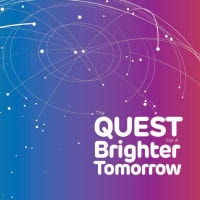This blog first appeared on LinkedIn | 16 November 2017 | Written by Raj Mitra
Letting go of an unsatisfying career was a critical part of creating a life without regrets. Finding a purpose was another. Self-help gurus often harp on making your passion your profession. But I have realised along the way: Passion is often overrated. Passion blinds your vision and clouds your judgment. Purpose, on the other hand, drives you to stay relevant and respond faster to rapid changes.
The idea is to remain prepared for the inevitable bumps ahead. Odds will stack up against you, but you just have to figure out a way to get there. And there’s always a way. Agility is key to finding yourself on the winning side. So, after leaving Credit Suisse, I dabbled in several things to figure out how to deliver value by remaining true to my core values in a world that’s getting more complex by the day.
Making sense of purpose
'Purpose' isn’t probably a noun, but a verb. That it's a ‘cause’ that we live for may not be the correct way of assessing the word. ‘Purpose’ is a sum total of what we are doing and how we are doing it. When ten people share a cause, it's only ten people with a binding factor, but their approaches differ widely. But if ten people share a ‘purpose’, then there's greater alignment between their interactions, thoughts, and actions.
According to
Aaron Hurst, the CEO of Imperative and author of
The Purpose Economy, the next big shift that we are going to see in the world is an economy that is driven by purpose. Hurst says,
“everything is in transition and far less permanent than we imagine. But if little of what we experience outlasts us, we can and should give ourselves far more permission to experiment and take risks”.
Why I joined AICL Communications
When I walked into
AICL’s Mumbai office a couple of months back to meet
Arvind Agrawal, the CEO, I had little understanding of what the Company did, except that it was a ‘stakeholder communications consultancy’. The 30-minute meeting lasted more than two hours. I returned home with a new-found purpose of helping companies enter into a dialogue with their stakeholders that are a lot more alert, informed and driven.
Arvind says,
“It does not make any sense to do stuff that many people are already doing. For me, the sweet spot is where my skills intersect with work that makes established players uncomfortable!”
Communication today is increasingly going back to the basics – a two-way process. In a sharing economy, caring about your stakeholders – internal and external – matters even more and effectively communicating that, 'we care', is immediately accretive to the bottom line. The faster the companies understand this simple notion, the better. Intentions and actions should speak in sync, for creating a common purpose.
The desire for impact
We are a collection of stories we choose to tell. We are also a collection of stories we choose not to tell. Openness implies involving the stakeholders in the decision-making process – it guarantees participation. At AICL, the belief runs deep. A well-informed stakeholder community will surely probe deeper, but will also come out with a much better understanding of products/services and values on offer.
The fact that India is a maturing creative market opens up many opportunities for focussed, bespoke consultancy modelled on developed economies, with vast scale and appetite. It is not just innovative and creative stakeholder communication solutions that define AICL, it is the purpose – telling stakeholders 'what’s in it' for them – that is synchronised across all actions.
In an age where every communication and action passes through minute scrutiny, corporates need to ensure that their stakeholders trust them as a brand that listens, engages and responds.
And I'm proud to be part of this journey with AICL!

















